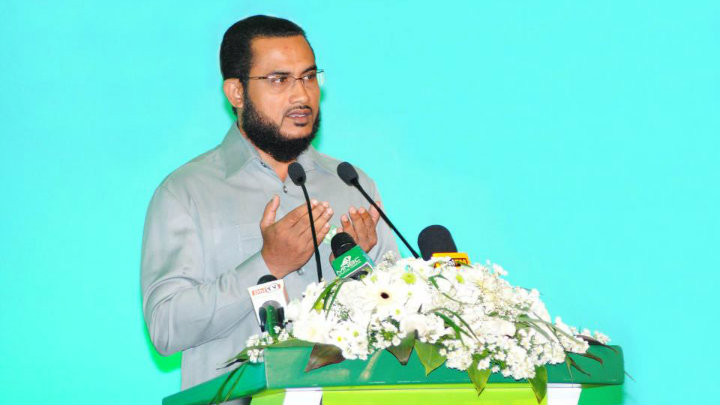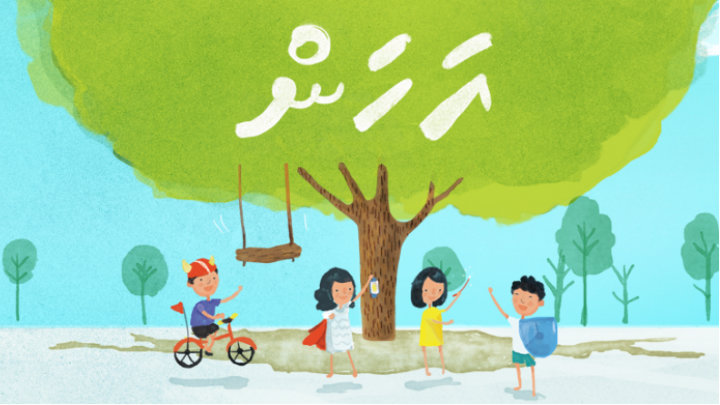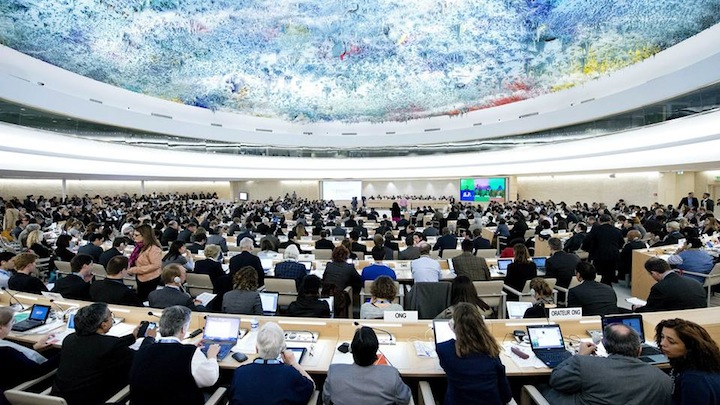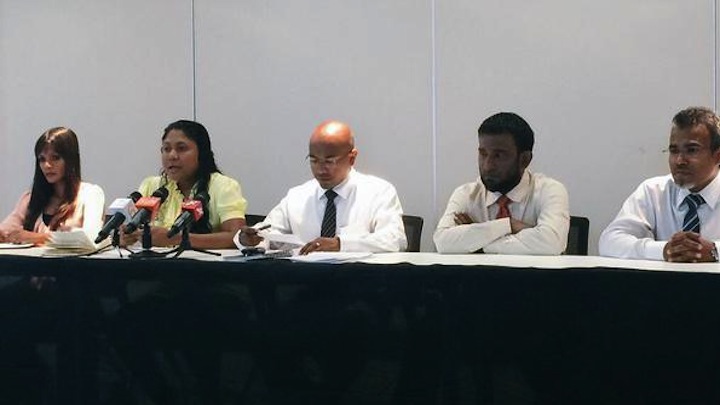The opposition’s campaign against President Abdulla Yameen’s “authoritarianism” has taken a religious turn, while Minivan News has learned the government is labeling the campaign as one that promotes Islamic radicalism.
On Friday night, the religious conservative Adhaalath Party’s Sheikh Ilyas Hussein held a sermon attended by thousands, where he warned of a calamity if brutality becomes common, and appealed to the security forces to be compassionate towards citizens.
“If there’s one group of people I respect in Maldivian society, it is the police officers and soldiers, because I believe they are carrying out a religious and national duty. I know the burdens they have to bear.
“But do not harm anyone without a just cause. No matter how high up the order comes from, do not harm anyone without just cause. Allah is watching. On the days He switches on his CC cameras, there will be nothing you can do,” he said.
Ilyas’ sermon comes amidst a crackdown on the opposition with the arrest of opposition leaders including Adhaalath president Sheikh Imran Abdulla, Maldivian Democratic Party (MDP) chairperson Ali Waheed and Jumhooree Party deputy leader Ameen Ibrahim.
The three were arrested after a 20,000 strong rally on May 1. Nearly 200 people were arrested and scores were injured in violent clashes.
Protesters were calling for the release of ex-president Mohamed Nasheed and ex-defence minister Mohamed Nazim, who were jailed on terrorism and weapons smuggling charges, respectively.
The Adhaalath Party had played a key role in Nasheed’s ouster in 2012, but formed an alliance with Nasheed’s MDP in March when Nazim was sentenced to 11 years in jail.
Opposition aligned Raajje TV is now broadcasting clips of Ilyas’ sermon with scenes of police arresting, beating, and pepper spraying protesters on May 1.
Ilyas and nine other Islamic scholars from the Adhaalath Party and the MDP also held a press conference on Saturday, where he said the majority of religious scholars are now against the government.
“We are announcing today that we do not accept the ongoing tyranny in the Maldives. We especially cannot tolerate such brutal acts from our leaders,” he said.
President Abdulla Yameen has refused to listen to the citizen’s concerns, he said, adding it is now obligatory on Muslims to protest.
Former state minister for Islamic affairs Dr Mohamed Didi said brutality is haram or forbidden in Islam and urged the government to review the “politically motivated trials” of Nasheed and Nazim.
“We call on all the Maldivian citizens to work together to stop this tyranny. If we are unable to do so, if tyranny continues, it will damage all of us, our entire nation and society.”
Sheikh Shuaib Abdul Rahman, a former member of the judicial watchdog, says citizens could pray for a curse on tyrants and unjust judges. Prayer is a powerful weapon, he said, adding that police officers will have to bear responsibility for any acts of brutality, even if they are committed on their superior’s orders.
President Yameen had previously turned down calls for dialogue, saying he will not release Nasheed and Nazim. Instead, the pair must seek an appeal at the high court, he said.
An information brief from the Maldivian mission in Geneva on May 1, obtained by Minivan News, claimed that the organizers of the protest had “mobilized people known to have radical connections in the Middle East and elsewhere, and paid for their travel to Malé and join the demonstration with the explicit purpose of creating violence.”
“The police have intelligence that some of the hardcore radicals Sheikh Imran has paid for were activists who took part in the incident on the island of Himandhoo in 2007,” read the brief.
Dozens, including police officers, were injured in clashes in Himandhoo when police attempted to enter a mosque in search of evidence related to a bombing in Malé.
Ambassador-at-large at the ministry of foreign affairs Mohamed Naseer has also told Sri Lanka’s The Sunday Leader that the May Day protesters had attempted to promote Islamic radicalism through the protest march.
Meanwhile, an anonymous video surfaced on YouTube today warning senior officials in the government of a suicide attack if they do not release Sheikh Imran.
“We came up like this cause we don’t have other option left. We will never let this country become a Mafia gang,” says a masked individual, against the backdrop of the Maldivian flag.
“We call on immediate release of Sheikh Imran Abdulla and stop mistreating him. We assure we will never let Sheikh Imran be dealt like Nasheed and Nazim,” said the individual in the video.
“If you sentence Sheikh Imran falsely, as our religious scholars said, we can have your life and blood. We will stop this! If necessary we do not hesitate to go for a suicide attack!”
A police media official said they have now started looking into the video.



